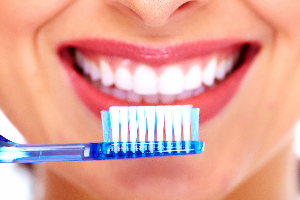
Gum disease can affect individuals of virtually any age. In many cases, individuals develop gingivitis, which can be harmful, but is easy to treat. Other individuals experience periodontal disease, a more advanced gum condition.
In our previous blog, “What It Might Mean If Your Gums Are Receding,” we listed the risk factors and warning signs of periodontal disease. In this blog, we discuss how periodontal disease can affect your health, both in your mouth and throughout your body.
How Gum Disease Affects Your Oral Health
As the name suggests, gum disease targets the soft tissues of the mouth, especially the gums. When your gums become weakened, the tissue may pull away from the teeth, exposing the roots to bacteria and decay.
Individuals with periodontal disease may also experience:
- Adult tooth loss
- Gum pain and tenderness
- Increased risk of oral cancers
- Tooth movement leading to extensive misalignment
- Tooth sensitivity to temperature changes or sugar
While you have active periodontal disease, you will not be able to undergo certain dental procedures. For example, you may need periodontal disease treatment and restorative gum grafts before you can enter an orthodontics program. Without these preparatory measures, the movement caused by your braces or alignment retainers could increase your risk of tooth loss.
How Gum Disease Affects Your Whole-Body Health
In addition to the damage gum disease can cause in your mouth, researchers have found a connection between periodontal disease and other serious health conditions. While the causal relationship is somewhat unclear, experts suspect that this connection stems from the fact that periodontal disease is an active bacterial infection that can potentially spread.
Individuals with periodontal disease also have a higher risk of the following conditions.
Coronary Artery Disease
If you have periodontal disease, you are twice as likely to develop coronary artery disease as someone with healthy gums. Research suggests that the oral bacteria that causes periodontal disease also causes inflammation in the heart that contributes to clot formation.
Dementia
While research into the connection between periodontal disease and Alzheimer’s and dementia is limited, some small-scale studies suggest a correlation. One such study, which evaluated the memory and gum health of 118 participants between the ages of 75 and 98, reported that the individuals with extensive tooth loss were more likely to exhibit dementia.
Diabetes
Diabetes and gum disease often appear together, possibly because diabetes increases an individual’s risk of infections. People with both diabetes and periodontal disease are six times as likely to struggle to control their blood sugar levels as other diabetic individuals. People with both conditions also have a higher risk of kidney disease.
Fertility and Pregnancy Problems
Studies suggest that periodontal disease may affect fertility and pregnancy success. Women who have periodontal disease may take longer to become pregnant. These women also have an increased risk of miscarriage and premature birth.
Respiratory Infection
The bacteria associated with periodontal disease may also endanger your lungs, especially if you have other risk factors of respiratory conditions such as a history of smoking. People with periodontal disease are more likely to develop a serious or permanent respiratory infection than those without.
Rheumatoid Arthritis
Research suggests that the connection between rheumatoid arthritis and periodontal disease comes from the same cause as the connection between heart problems and gum disease. Namely, because periodontal disease encourages inflammation, its presence also increases the risk of other inflammatory conditions.
In many cases, these conditions and periodontal disease contribute to each other, without one condition being the obvious source of the other. For example, diabetics have a higher risk of developing periodontal disease just as individuals with periodontal disease are more likely to be diagnosed with diabetes.
If you have one of the conditions listed above, let your dentist know during your next appointment. He or she may recommend specific measures to reduce your risk of serious periodontal disease.
Similarly, if you are diagnosed with periodontal disease, discuss how this oral infection may impact the rest of your body the next time you visit your primary care doctor.
How to Reduce Your Risk of Gum Disease
If you don’t currently have gum disease, prevention is simple. Maintain a consistent oral hygiene routine and schedule appointments with your dentist every six months.
If you exhibit the signs of gingivitis or periodontal disease, discuss your options with your dentist. You may be able to improve your symptoms immediately by adding a fluoridated mouthwash or specialized toothpaste to your oral hygiene routine.
To eliminate your gum disease, your dentist may recommend specific periodontal disease treatment. Treatment often involves evaluating your condition through X-ray images and cleaning and scaling the affected areas. In some cases, minor oral surgery may be required to restore the elasticity and correct position of your gum tissue.
Discuss your risk of gum disease with your dentist to protect your smile and your entire body.
